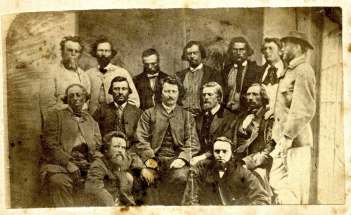Retailers’ loss, police officers’ gain Shoplifting wave allows cops to increase pensionable earnings with off-duty security, traffic work
Read this article for free:
or
Already have an account? Log in here »
To continue reading, please subscribe:
Monthly Digital Subscription
$0 for the first 4 weeks*
- Enjoy unlimited reading on winnipegfreepress.com
- Read the E-Edition, our digital replica newspaper
- Access News Break, our award-winning app
- Play interactive puzzles
*No charge for 4 weeks then price increases to the regular rate of $19.00 plus GST every four weeks. Offer available to new and qualified returning subscribers only. Cancel any time.
Monthly Digital Subscription
$4.75/week*
- Enjoy unlimited reading on winnipegfreepress.com
- Read the E-Edition, our digital replica newspaper
- Access News Break, our award-winning app
- Play interactive puzzles
*Billed as $19 plus GST every four weeks. Cancel any time.
To continue reading, please subscribe:
Add Free Press access to your Brandon Sun subscription for only an additional
$1 for the first 4 weeks*
*Your next subscription payment will increase by $1.00 and you will be charged $16.99 plus GST for four weeks. After four weeks, your payment will increase to $23.99 plus GST every four weeks.
Read unlimited articles for free today:
or
Already have an account? Log in here »
Hey there, time traveller!
This article was published 13/12/2019 (2188 days ago), so information in it may no longer be current.
In theory, most Winnipeggers would welcome the sight of off-duty police officers providing security at stores amidst an often-violent shoplifting spree that has stunned the city.
The reality, though, is the huge increase in special-duty policing — off-duty cops hired at pension-eligible overtime pay rates to deter thieves and robbers — comes with a cost.
Most observers outside police circles likely assume the OT involves work such as protecting a crime scene or hunting down a murder suspect, not acting as extra store security or directing traffic at a big-box store during the holiday rush.
But the current police pension formula does not differentiate between front-line work and special-duty policing.
This week, city hall moved to remove overtime from the police union’s pensionable earnings, an issue that has bedevilled civic politicians for years.

“Most citizens would find it outrageous,” said Kevin Walby, an associate professor in the department of criminal justice at the University of Winnipeg.
Walby has studied special duty — or moonlighting — by police officers in 50 Canadian and American cities and its impact on pensions.
Already this month, 481 Winnipeg Police Service officers have been booked for special-duty work including security detail at Superstore, Polo Park and Liquor Marts and directing traffic in and out of the St. James Street Costco parking lot.
Officers can volunteer for the overtime work in their off-duty hours.
What is special-duty policing?
It allows Winnipeg Police Service officers to volunteer to work during days off at places such as retail outlets and sporting events. Officers’ overtime hours are paid out of the city’s set fee for the service.
The fee to hire a constable is $112 plus tax per hour. It increases to $134.40 plus tax for a staff sergeant, and $166 plus tax for a patrol sergeant. For traffic duty, a cruiser is required, which is an extra $31.81 per hour.
The city earns a cut from the deal. An officer’s overtime pay depends on their wage classification.
It allows Winnipeg Police Service officers to volunteer to work during days off at places such as retail outlets and sporting events. Officers’ overtime hours are paid out of the city’s set fee for the service.
The fee to hire a constable is $112 plus tax per hour. It increases to $134.40 plus tax for a staff sergeant, and $166 plus tax for a patrol sergeant. For traffic duty, a cruiser is required, which is an extra $31.81 per hour.
The city earns a cut from the deal. An officer’s overtime pay depends on their wage classification.
How does the police pension work?
Officers can retire with a partial pension after 20 years of service and a full pension after 25 years.
Officers taking their pension after 20 years of service are entitled to only 36 per cent of their best five years of service salary. After 25 years of service, they can get 50 per cent of their salary and 60 per cent after 30 years.
Under the current pension plan, the amount of pension paid is based on the years of service multiplied by 1.4 per cent of the officer’s best consecutive five years average earnings up to the Canada Pension Plan’s ceiling and by two per cent of the officer’s best consecutive five years average earnings above that.
For example, if a 55-year-old officer worked 25 years, and their best consecutive five years earnings are $70,000, they would earn a pension of $27,755 per year, or about $1,067.50 every two weeks.
A constable is currently paid from $26.91 per hour, or $55,964.55 annually, as a starting wage up to $53.81 per hour, or $111,929.09, after 15 years. That jumps on Dec. 31 — ending the third year of the five-year collective agreement that expires Dec. 31, 2021 — to a starting wage of $27.58, or $57,363.66, up to $55.16, or $114,727.32, after 15 years.
But that doesn’t include regular overtime payments or what the officers can receive for special-duty works. And it can add up.
An unnamed Winnipeg police constable was the 10th-highest paid civic employee in 2018, collecting a total of $199,540. Another constable, with earnings of $192,876, was next on the list. Mayor Brian Bowman, at $188,741, was 12th. Police Chief Danny Smyth earned $260,510 in 2018.
“(Special-duty police work) is so far outside the regular police force duties of keeping order that there could be a political backfire… and in Winnipeg there has been debate on the pension and police budget,” Walby said.
Walby said he and other researchers have found several problems with special-duty policing, including possible conflicts of interest, eroding the public’s perception of police work — tarnishing the force’s image, depending on the special-duty work officers are doing — and having little accountability and oversight.
“The public wonder, are they there to protect the public or to protect the private buyer?” he said.
On Thursday, the mayor and city council voted 10-6 in favour of a bylaw that unilaterally removed overtime as a pensionable earning. Other significant changes in the bylaw that will shift $12 million in annual costs from city hall to individual police members include increasing officer contributions while reducing city contributions and changing early retirement provisions. The changes take effect April 1.
The Winnipeg Police Association is fighting the changes through the collective bargaining process; a grievance hearing before an independent labour arbitrator is set to begin Jan. 14. The union is prepared to eventually take the matter to court.
Police association president Moe Sabourin said special-duty pay factored into officers’ pensions is something that has always been done here.

Not only does their contract with the city allow it, but provisions in the collective bargaining agreement have already taken the added pay into account, he said, explaining that while WPS members are paid pension-eligible OT at time-and-a-half, officers in other jurisdictions earn double their regular pay rate when they work overtime hours.
“We have a history of more than 40 years of negotiating changes to the pension plan and the CBA,” he said. “Only recently has the city taken the tactic of saying they can unilaterally make changes.”
The Winnipeg Police Service also posits the fees charged for special-duty policing cover all current and future costs.
But Mayor Brian Bowman and the members of city council have, for several months, had police benefits under the microscope as they look for ways to rein in costs. The city is entering a new era of preparing budgets in four-year chunks rather than annually, as has been done in the past.
“We’re making changes to the pension and we’re doing so in order to better provide the resources for front-line police operations, as well as to provide the resources to allow the police service to save some of the positions that were being contemplated for reduction,” Bowman said Friday.
Officers are currently able to retire and begin drawing their pensions with no penalty after 25 years on the force. Under the changes, new hires aren’t able to begin collecting those funds until they turn 55, or 50 with 25 years of service.
Sabourin predicts that if the city gets its way, as many as 200 officers will retire before the pension changes go into effect in April.
“It could be very bad — you can imagine how that will affect the city,” he said.
Meanwhile, requests for special duty have skyrocketed. In October, 310 officers and 129 cruisers were deployed. The numbers rose in November — 373 officers, 161 cruisers. And 481 officers and 31 cars have already been booked this month, Police Chief Danny Smyth told a recent Winnipeg Police Board meeting.
“We’re sensitive to the overtime,” Smyth said following the meeting. “We recover our costs on it, but it’s the time of our officers.
“They’re volunteering on their days off to do that. We don’t want to burn them out… but the demand is starting to increase. We can’t sustain this long term. I’ve certainly spoken with some of the retailers to say, ‘Don’t be counting on the police overtime to solve your retail-theft problems.'”

Taxpayer advocate Todd MacKay said the controversy is another reason why the defined benefit pension plan should be replaced.
“Cities across the land are all struggling with affordability,” the Prairie regional director of the Canadian Taxpayers Federation said. “Just because some others have sweet deals doesn’t mean others should get it… we can’t just look across the fence to see how green the grass is.
“In this case, what seems like a small thing on pensionable payments for overtime adds up to millions of dollars each year… defined pensions are a recipe for trouble.”
And, as for officers receivuing pensionable earnings for volunteering to do traffic duty at Costco or provide security in a store, “No one begrudges their pension when they’re at an incident, but if people are racking up extra hours to help their pensions, that’s different. It can drastically increase costs,” he said.
“It has to be fair and it has to be affordable.”
MacKay said the city should have been tougher and fought to change the pension during negotiations.
“Police officers do hard work and there’s nothing saying they shouldn’t have a comfortable living, but we have to get costs under control.”
Sabourin said Winnipeg’s police currently have a good pension because it is something the association successfully negotiated during years of bargaining and contracts. And early retirement is part of it.
“A police officer will die five years sooner than any other worker, that’s why we can retire earlier,” he said. “Do we want to see a 55-year-old officer running after a 25-year-old?”
kevin.rollason@freepress.mb.ca

Kevin Rollason is one of the more versatile reporters at the Winnipeg Free Press. Whether it is covering city hall, the law courts, or general reporting, Rollason can be counted on to not only answer the 5 Ws — Who, What, When, Where and Why — but to do it in an interesting and accessible way for readers.
Our newsroom depends on a growing audience of readers to power our journalism. If you are not a paid reader, please consider becoming a subscriber.
Our newsroom depends on its audience of readers to power our journalism. Thank you for your support.
History
Updated on Tuesday, February 4, 2020 2:26 PM CST: A previous version of this story raised concerns that special-duty policing costs added to the growing pension tab facing taxpayers. However, the Winnipeg Police Service insists the fees charged for special-duty policing cover all current and future costs. This story has been corrected to reflect this.














